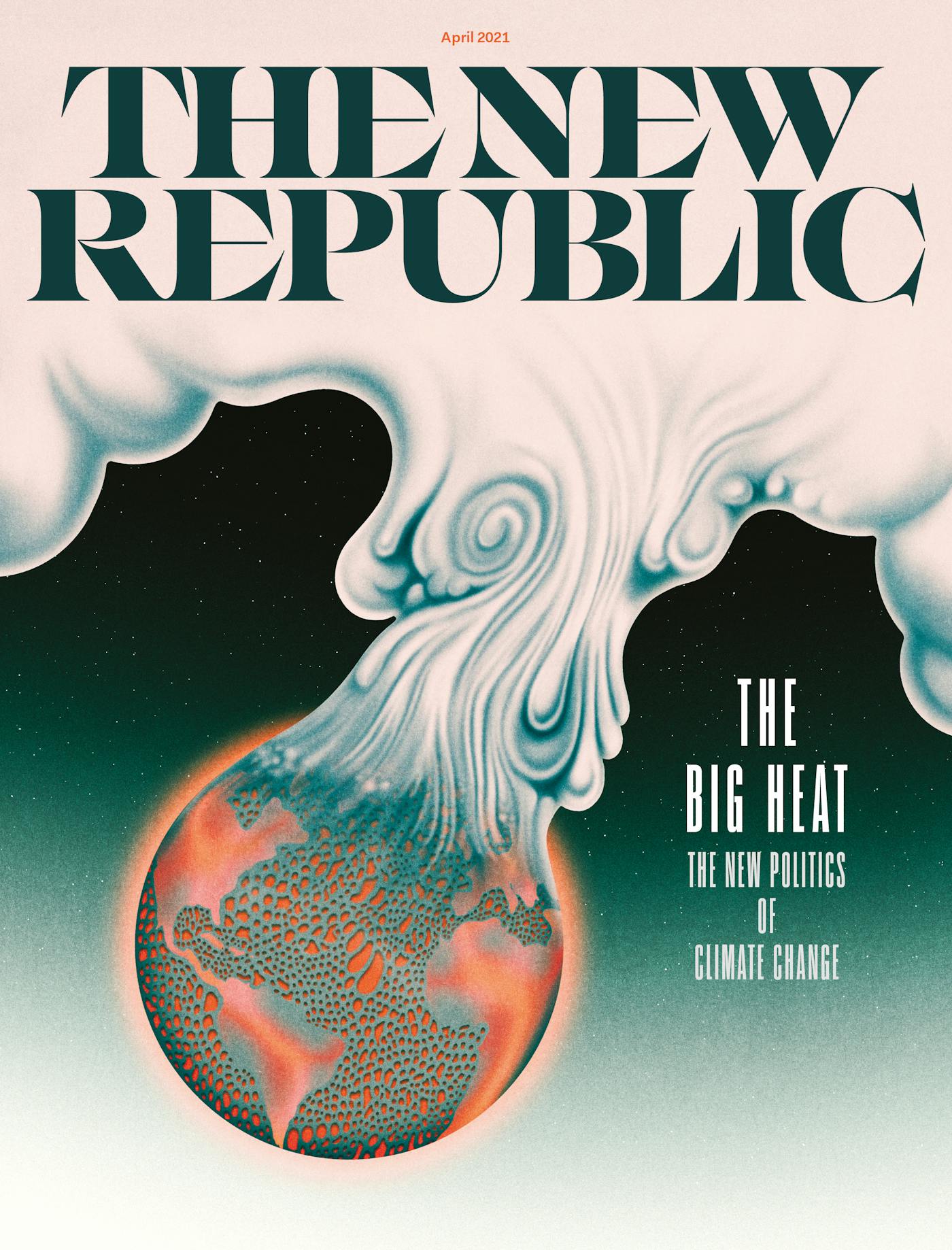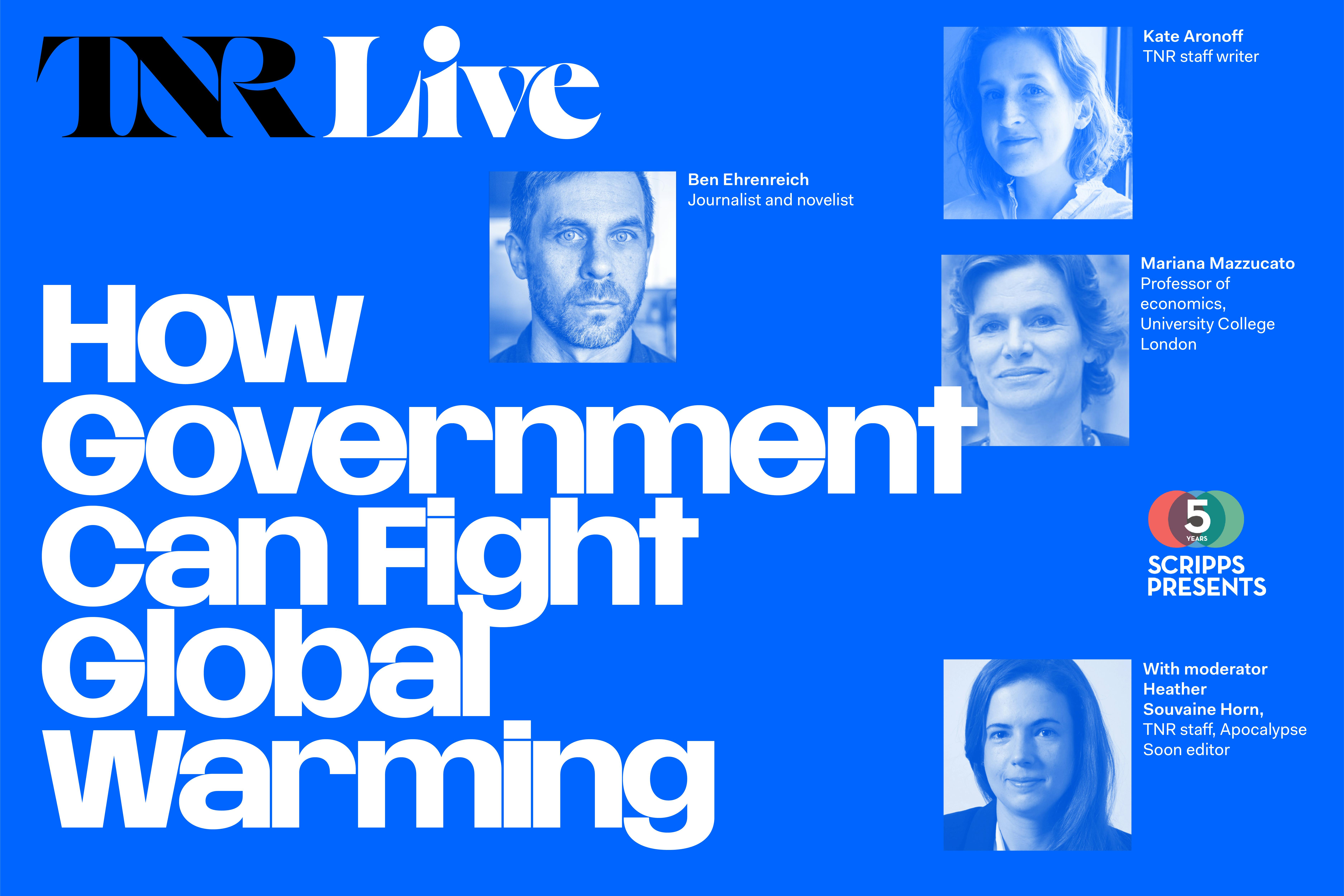 |
| TNR’s editorial director introduces our April issue: Dear Reader, Joe Biden has, in a few short months, done more to mitigate climate disaster than any president before him. He’s paused new permits and leases for offshore oil and gas drilling (wish he’d ended them, but it’s better than nothing), shut down the Keystone XL oil pipeline (at long last), and ordered all government vehicles to convert to zero emissions (no small thing). We can expect an Office of Domestic Climate Policy, a national climate adviser, a Civilian Climate Corps—on the whole, an encouraging beginning. The changes would seem to make it possible to face the future, for a moment, with something other than “pure dread,” as Ben Ehrenreich suggests in the latest issue of The New Republic. But one’s good mood shouldn’t last. If Biden stays within the limits of “pragmatic climate policy,” as right now he gives every indication of doing, if our government intends to sally at the immense problem of global warming without addressing its root causes, if we remain as tightly tethered to capitalism and all its depredations as ever, we are, in a word, still screwed. Persist in the fantasy of a market solution to our climate ills, Ehrenreich argues, and the market will provide, “right on schedule or perhaps a little early,” climate hell. If the claim seems dramatic, consider some of the evidence: Nearly every optimistic scenario of limiting warming to 1.5 degrees Celsius (2.7 degrees Fahrenheit) while maintaining economic growth assumes we will remove carbon from the atmosphere with technology—but the technology to do so at scale doesn’t exist. The corporations in fossil fuel–intensive industries that have pledged to reduce their emissions all depend on carbon offsets to reach their net-zero promises—except the forests they’d need to plant would have to be so big, there simply isn’t enough available land. Green growth relies on the premise that we can decouple economic expansion “from the ecological damage that it has heretofore almost universally wreaked.” Ehrenreich agrees that it’s a pleasant thought. He just sees no reason to believe that it’s true. There’s pleasure, even relief, in witnessing someone state a case so eloquently and plainly, even when the argument itself offers little comfort. Is the prospect of suicide enough to make us reimagine the economic order wholesale? At least we know that if it doesn’t, nothing will. Also in the April issue of The New Republic, Mariana Mazzucato explores not the abolition of capitalism but what it would take to transform it for the better; Kate Aronoff proposes that the United States could end the fossil fuel era by joining OPEC; and Adele M. Stan anatomizes how Steve Bannon altered the Republican Party. —Emily Cooke, editorial director | |
| | |
| In this issue: | |
| |
| |
| Advertising 
| ||||
| ||||
| Copyright © 2021 The New Republic, All rights reserved. | ||||



